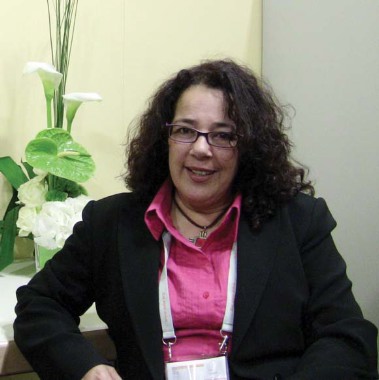User login
Medical students in the United Kingdom are not interested in making rheumatology a core part of their training, and some see time spent studying in the subspecialty as a "holiday," according to the results of a survey of 256 medical students presented at the annual European Congress of Rheumatology.
The results show that only about 9% of respondents (24 students) see rheumatology as a specialty that would be useful to study during their foundation years, the 2 years of study between medical school and specialty training. The top choices were acute medicine, emergency medicine, and surgery. When asked if they would consider rheumatology as one of the rotations during the foundation years, 53% said no. And 55% said they would not want to see more rheumatology posts be made available during the foundation years.
Dr. Thalia Roussou, a rheumatologist at BHRUT (Barking, Havering, and Redbridge University Hospitals in Essex, England) who designed the survey, said the results were both disappointing and surprising.
"We work toward inspiring people to careers in rheumatology, but whatever we’re doing is not working," said Dr. Roussou, who is also a clinical senior lecturer at Queen Mary University of London.
Part of the issue is the lack of exposure to rheumatology patients during the medical school years, she said in an interview.
Most students who responded to the 2009 online survey said they had limited exposure to rheumatology so far in their training. More than 60% reported they had received only 3 weeks of exposure to the subspecialty. Another 21% reported that they had no exposure to rheumatology. Dr. Roussou said it’s likely that students are underreporting their exposure, but it’s their perception, more than the reality, that matters in this case.
Respondents who answered open-ended questions about rheumatology said they shied away from the specialty because it seemed like a small, niche specialty that wasn’t relevant to their intended practice area.
Dr. Roussou reported that she had no relevant conflicts of interest.
Medical students in the United Kingdom are not interested in making rheumatology a core part of their training, and some see time spent studying in the subspecialty as a "holiday," according to the results of a survey of 256 medical students presented at the annual European Congress of Rheumatology.
The results show that only about 9% of respondents (24 students) see rheumatology as a specialty that would be useful to study during their foundation years, the 2 years of study between medical school and specialty training. The top choices were acute medicine, emergency medicine, and surgery. When asked if they would consider rheumatology as one of the rotations during the foundation years, 53% said no. And 55% said they would not want to see more rheumatology posts be made available during the foundation years.
Dr. Thalia Roussou, a rheumatologist at BHRUT (Barking, Havering, and Redbridge University Hospitals in Essex, England) who designed the survey, said the results were both disappointing and surprising.
"We work toward inspiring people to careers in rheumatology, but whatever we’re doing is not working," said Dr. Roussou, who is also a clinical senior lecturer at Queen Mary University of London.
Part of the issue is the lack of exposure to rheumatology patients during the medical school years, she said in an interview.
Most students who responded to the 2009 online survey said they had limited exposure to rheumatology so far in their training. More than 60% reported they had received only 3 weeks of exposure to the subspecialty. Another 21% reported that they had no exposure to rheumatology. Dr. Roussou said it’s likely that students are underreporting their exposure, but it’s their perception, more than the reality, that matters in this case.
Respondents who answered open-ended questions about rheumatology said they shied away from the specialty because it seemed like a small, niche specialty that wasn’t relevant to their intended practice area.
Dr. Roussou reported that she had no relevant conflicts of interest.
Medical students in the United Kingdom are not interested in making rheumatology a core part of their training, and some see time spent studying in the subspecialty as a "holiday," according to the results of a survey of 256 medical students presented at the annual European Congress of Rheumatology.
The results show that only about 9% of respondents (24 students) see rheumatology as a specialty that would be useful to study during their foundation years, the 2 years of study between medical school and specialty training. The top choices were acute medicine, emergency medicine, and surgery. When asked if they would consider rheumatology as one of the rotations during the foundation years, 53% said no. And 55% said they would not want to see more rheumatology posts be made available during the foundation years.
Dr. Thalia Roussou, a rheumatologist at BHRUT (Barking, Havering, and Redbridge University Hospitals in Essex, England) who designed the survey, said the results were both disappointing and surprising.
"We work toward inspiring people to careers in rheumatology, but whatever we’re doing is not working," said Dr. Roussou, who is also a clinical senior lecturer at Queen Mary University of London.
Part of the issue is the lack of exposure to rheumatology patients during the medical school years, she said in an interview.
Most students who responded to the 2009 online survey said they had limited exposure to rheumatology so far in their training. More than 60% reported they had received only 3 weeks of exposure to the subspecialty. Another 21% reported that they had no exposure to rheumatology. Dr. Roussou said it’s likely that students are underreporting their exposure, but it’s their perception, more than the reality, that matters in this case.
Respondents who answered open-ended questions about rheumatology said they shied away from the specialty because it seemed like a small, niche specialty that wasn’t relevant to their intended practice area.
Dr. Roussou reported that she had no relevant conflicts of interest.
AT THE ANNUAL EUROPEAN CONGRESS OF RHEUMATOLOGY
